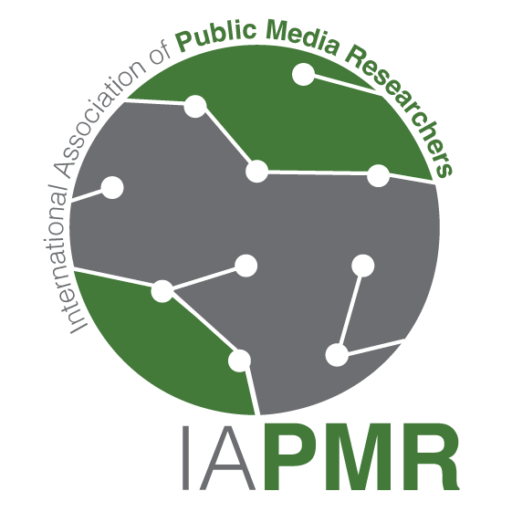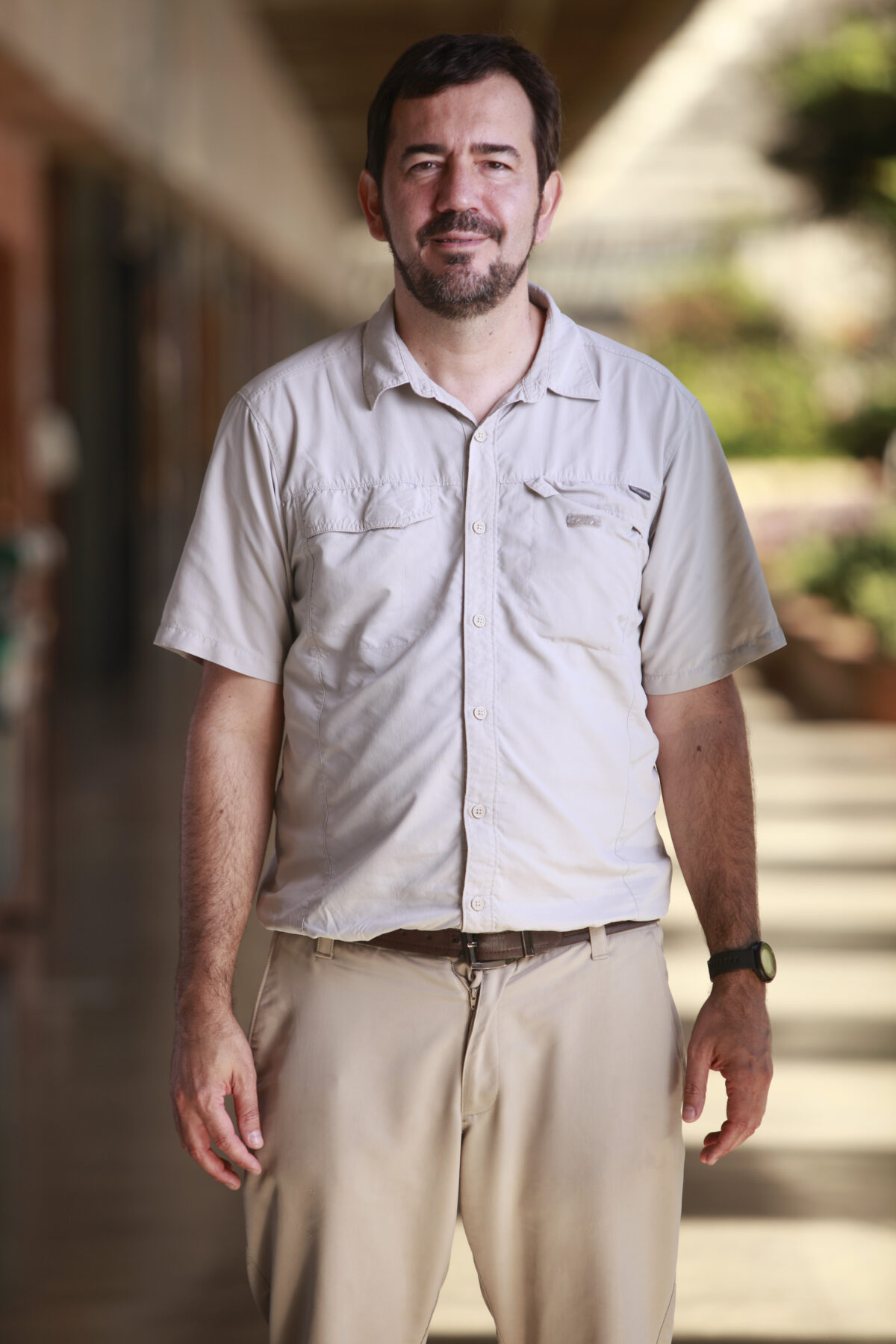Fernando Oliveira Paulino is a Professor at the University of Brasília (UnB), Brazil and President of the Latin American Association of Communication Researchers (ALAIC, 2022-2026). He is member and co-founder of the Brazilian National Network of Media Watchers (RENOI) and the Forum for the Right to Access Public Information. Paulino served as ombudsman at the Brazilian federal broadcaster EBC from 2008 to 2012, and is a member of the steering committee of the World Journalism Education Council (2025-28). Paulino was a Visiting Professor at TU Dortmund University, Germany (2020-2021), Visiting Researcher at the George Washington University, USA (2022), and President of the Brazilian Federation of Scientific and Academic Associations (2020-2022).
First of all, can you tell us about your current projects related to public media?
I believe it is important to carry out teaching, research, and outreach activities that take into account the possibilities of contributing to public media at the local, national, regional, and global levels. To this end, it has been essential not only to follow what is happening in Brazil and Latin America, but also to foster cooperation with other regions through cooperation projects, such as “Information Integrity in Brazil and Germany: Regulation, Policies and Media Education, with Brazilian colleagues and researchers from TU Dortmund University in Germany. I am also involved in other learning, research and outreach initiatives connected to the ‘Communication Policies Lab’ (LaPCom) and the ‘Community Communication Project’, as well as participating in networks such as the UNESCO Media and Information Literacy Alliance Latin America Chapter.
In addition to studying what happens within public media companies, I would like to emphasize the importance of monitoring initiatives that directly or indirectly influence PSM and are carried out by various organizations, such as international entities, business and union representatives, scientific and academic associations, and civil society organizations. For example, researching and organizing texts and dialogues on communication and media education policies has been fundamental to understanding and improving actions, and of course assisting in the training of professionals who can better understand the relationship between communication and citizenship.
Looking back, do you think there is any particular discussion or debate around Public Service Media that remains unsolved, despite being the object of extensive academic research?
Reading and viewing presentations of academic papers on communication, such as through my current role as Co-Chair of the ‘Communication, Social Justice and Democracy’ Working Group at IAMCR, has helped me realize that many issues related to PSM are not necessarily due to a lack of knowledge or systematic reflection on academic research or expert reports. It is necessary to constantly take into account the political cultures, social practices, and administrative environments related to PSM practices, which are increasingly at risk due to the growth of autocratic practices, on the one hand, and also deficient in many countries due to media systems based on a historical perspective of concentration of ownership, political use of communication vehicles, low levels of journalistic ethics, significant violence against communication professionals, limited media and information literacy experiences, and reduced media accountability practices and public participation in the management of communication vehicles. In this sense, I believe that such issues need to be constantly studied so that we can improve the conditions for communication practices that strengthen dialogue, coexistence and democracy.
The global rise of authoritarianism has put public broadcasters under pressure. In Brazil, the governance structures of the federal broadcaster EBC were dismantled during the Bolsonaro government. Can you tell us about the current situation?
From a historical perspective, it is important to note that print media had a more limited reach compared to other countries due to literacy barriers and economic costs. In the 1920s, Brazil pioneered radio broadcasting for educational and cultural purposes, but this was quickly overtaken by commercial practices that shaped the country’s predominantly private media system. Broadly speaking, this also happened in other countries of what is now called the Global South. As a result, we have a historical deficit in relation to the right to communication and access to information through public media initiatives. Following the military dictatorship, civil society movements gained strength, with significant contributions from researchers who ensured that the Brazilian Constitution included provisions for a media system based on the complementary roles of private, state and public entities. This reference served as the basis for the creation of the Brazilian Communication Company (EBC) in 2008. Unfortunately, only eight years after its creation, EBC’s governance structures, such as the Board of Trustees, were suppressed or undermined, and during the Bolsonaro administration (2018-2022), there were practices of restricting professional activities and government interference in public content, as can be seen in reports developed by initiatives such as the Front in Defense of EBC and Public Communication and the Citizen Ombudsman. Possibly because of the current political tension, the current federal government has not proposed the re-creation of the Board of Trustees along the lines of the law that created EBC. However, this year saw the establishment of the Editorial and Programming Committee and the Social Participation, Diversity, and Inclusion Committee, two instances that can contribute to making the EBC more of a public communication initiative than a government communication instrument.
With PSM often being understood as a genuinely European concept, is there anything that European PSM can learn from their counterparts in Brazil and Latin America?
On the one hand, yes, there is a pioneering tradition of European practices and conceptual reflections on PSM. On the other hand, reflections on communication and democracy, which focus on PSM mobilizations and practices, have been carried out over time in other regions of the world and also serve as tools to analyze PSM experiences and related actions. For example, there is a historical concern in Latin America with communication and social mobilization and media and information literacy, which are essential to understanding the role that PSM can and should play. In addition, phenomena such as the use of the internet as a tool for public communication and the role that PSM plays in public science communication and the promotion of information integrity are topics that are on the agenda in the field of communication both inside and outside Latin America and for which researchers from around the world can seek and find joint analyses and paths. I believe that one of the tasks we have is to stimulate a productive dialogue between the Global South and the Global North, contributing to a mutual understanding that, at the very least, reduces prejudices and communication failures.
What would your advice be for a young scholar who is starting to work around Public Service Media?
I think the main thing is to realize that we are not alone and that academic cooperation usually brings more results than competition. To paraphrase the proverb, “If you want to go fast, go alone. If you want to go far, go in a group.” To this end, it is essential to be well prepared, to read, to open up horizons to perspectives that differ from academic ethnocentrism, to encourage cooperation and scientific equity, and to take care of the whole body, not just the mind. It is essential to be healthy and foster healthy relationships so that, with this care, we can achieve good professional and human results. I am proud to have achieved results in terms of scientific and academic production with research, books, articles, organization and participation in events, guidance, and the creation and management of associations. However, I am even happier to remember, feel, and foster the friendships and exchanges of knowledge and affection that life has provided.

